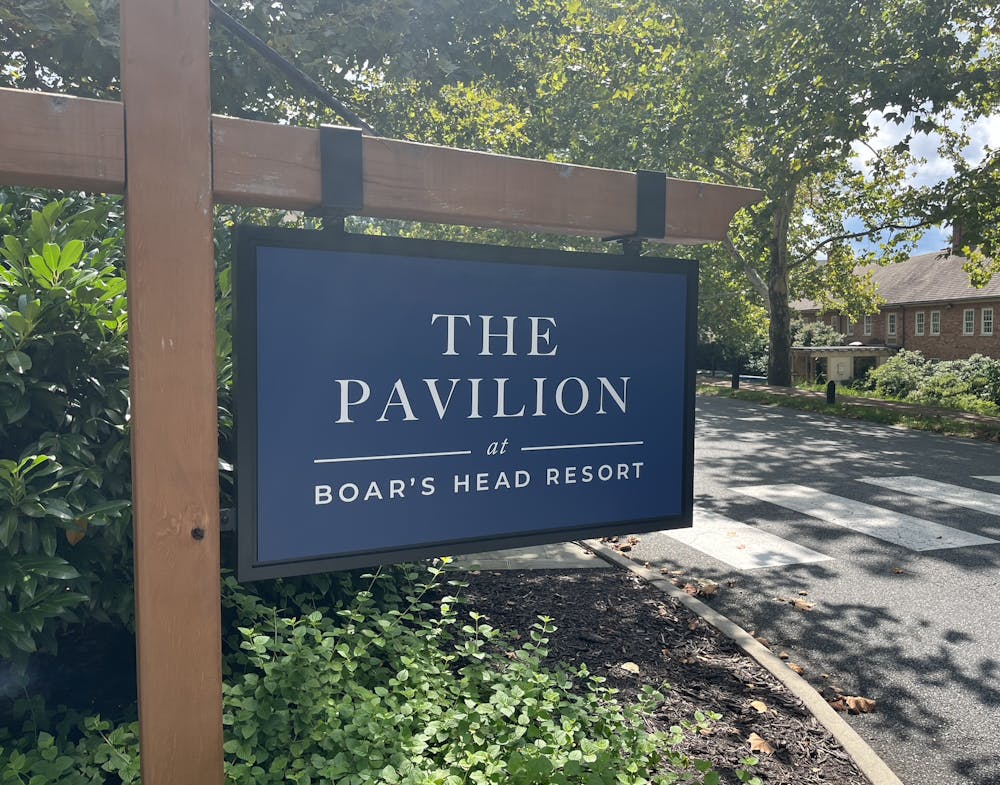The Board of Visitors met Sunday and Monday at Boar’s Head Resort for its annual retreat, which included presentations on the new college curriculum, Virginia Athletics, finances and opportunity for the four new members — appointed by Governor Glenn Youngkin in June — to get to know fellow members better.
University President Jim Ryan gave introductory remarks and said the University continues to rank highly when compared to other universities.
“In some respects, the key to a successful university is really pretty simple,” Ryan said. “You try to attract and retain the very best faculty and staff, and you try to attract the very best students you can and you provide them the opportunity to succeed.”
Rector Whittington Clement reminded the Board that a shared love for the University exists between members and urged them to look past political beliefs and work in the best interest of the University.
“All important work together will be best achieved if we recognize that we're here to find common ground, to support the leadership of this University and solve more problems than we create,” Clement said.
Clement also introduced the four new members — Bert Ellis, Amanda Pillion, Stephen Long and Doug Wetmore. Ellis, a College and Darden alumnus, has been a point of controversy at the University for his past and more recent behavior.
Peter Blake, director of the State Council of Higher Education, and Todd Gilbert, speaker of the Virginia House of Delegates, informed the Board of their roles in Virginia education and spoke on important issues facing the University. Blake encouraged the University to set an example for other institutions in the state, while Gilbert spoke on the University’s role in protecting various viewpoints as a self-described “conservative-minded” individual.
Members were also provided information on the new College of Arts and Sciences curriculum including updates on the Engagements pathway — a collection of seven week seminar style courses offered to first-year students. The Engagements pathway has grown from 600 first-year students in 2017 to 1,950 first-year students.
While explaining the role of engagement classes, Janet Spittler, associate professor of religious studies and the engagements program director, said the engagements prepare students for major-specific classes and provide tools for how to formulate important questions.
Provost Ian Baucom expressed his support for the new curriculum and said he thinks it prepares students to work towards answering the big questions that plague society, such as climate change, pandemics and the ethical uses of data.
“The faculty determined that we needed to teach [students] not the answers to those questions, but how to ask questions,” Baucom said.
In addition to academic updates, Athletic Director Carla Williams, provided the Board with updates on athletic programs. Most notably, Williams addressed the June 2021 Supreme Court decision prohibiting the National Collegiate Athletic Association from limiting name, image and likeness deals — a process where brands can offer endorsements to student athletes.
While 215 male student athletes had NIL opportunities and female student athletes had 117 NIL opportunities last year, Williams stated that female athletes at the University are the highest earners.
To conclude the retreat, Chief Operating Officer J.J. Davis provided a detailed report on the financial standing of the University. Davis said the University has an AAA bond rating — the highest rating awarded to an issuer of bonds — and is one of only two public universities in the country to meet 100 percent of demonstrated financial aid.
Davis also addressed issues facing the University, noting the University faces a “war on talent” with increased recent turnover among faculty. She reported that the University has historically seen an employee vacancy rate in the academic division between 7 percent and 8 percent, but now the University is at roughly 16 percent.
With these numbers in mind and the important role faculty plays in the success, Davis said pay increases must be considered as low salaries have played a role in turnover.
“The issue of compensation and giving people compelling reasons to stay to work at U.Va. is paramount,” Davis said. “The Board can play a critical role in all this.”
The Board will reconvene for the meeting of the new academic year Sept. 15 and 16.







